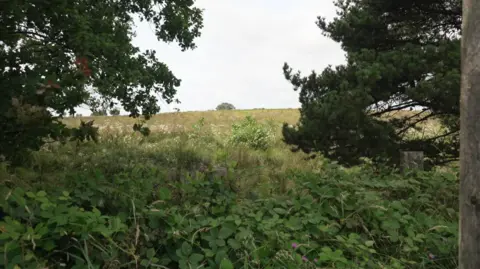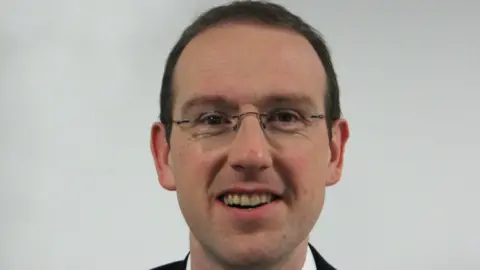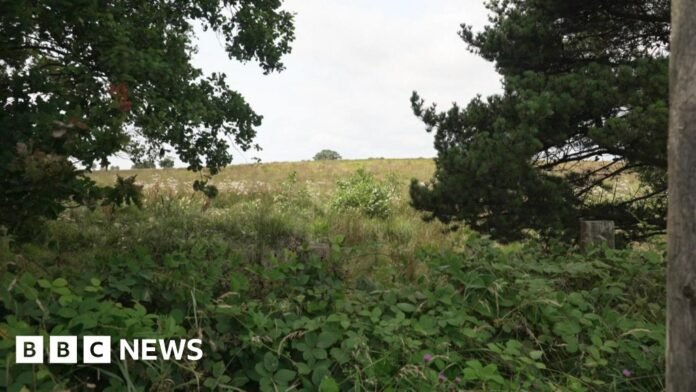 BBC
BBCThe drive to reach net zero is leading to a “wild west” of applications for potentially dangerous battery storage sites across Wales, a politician has said.
Llyr Gruffydd, chairman of the Senedd’s climate change, energy and infrastructure committee, said applications for battery energy storage systems (Bess) were often “speculative punts” that were “coming forward in an unmanaged way”.
There are currently 87 Bess applications in Wales, but campaigners say they pose a safety risk after serious fires across the globe.
The Welsh government said the systems would assist the increasing use of renewable energy to “provide the low-carbon flexibility we require”.
Bess allows energy to be stockpiled, usually in lithium-ion batteries when, for instance, strong winds are creating an energy surplus from turbines or the sun is making a surplus from solar panels.
Energy can be stored and released to the grid at a later stage when there is more demand.
The systems are covered by a robust regulatory framework which applies regardless of the size of the facility.
However, there have been fires reported at Bess sites, including one in Liverpool in September 2020 which created a “significant blast” and took 59 hours to extinguish, and another in California earlier this year.
 Clare Rees
Clare ReesOne of the proposed developments in Wales is near Cefn Rhigos in Rhondda Cynon Taf, where an application is under way for a site which could import and export 200 MW of power.
Cefn Rhigos resident Clare Rees said the site was too close to houses, just a few hundred metres away.
She said: “Our main concern as a community is the proximity of the houses and people to the proposed site and the dangers that could come from a fire.
“They say the risk is low, but the risk is there and rules need to be in place to safeguard residents.”
Agents acting on behalf of the developer told BBC-produced Newyddion S4C they did not want to respond to the concerns.
Rhondda Cynon Taf council said the application had been called in by Welsh ministers and was currently on hold, pending the submission of further information from the applicant.
 Sam Robertshaw
Sam RobertshawProf Kathryn Toghill, originally from Caernarfon, Gwynedd, said she recognised the fire risk and said other options should be considered.
“I think the risk is manageable but there are alternatives and we shouldn’t be putting everything into lithium-ion batteries,” the professor of sustainable electrochemistry and energy materials at Lancaster University said.
“It might be more that we need to diversify our battery technology… [but] it’s really hard to compete with the costs of these and that’s what really matters to people when it comes to energy.”
Prof Toghill also claimed there was an “energy security risk” in becoming overly-reliant on lithium-ion batteries used at Bess sites as the UK has no supply chain for creating them, relying on countries such as China for the critical raw materials.

Not referring to any specific development, Plaid Cymru MS Gruffydd said there needed to be a “national strategy” in terms of battery storage and where to place them.
“Battery storage is a part of the answer when it comes to our energy future in Wales,” he said.
“But the fear I have is that the developments that are on the table at the minute and that are flying in as speculative punts, very often from all sorts of energy companies, are coming forward in an unmanaged way.
“It’s unmanaged, it’s a bit of a wild west situation at the moment and that needs to change.”
The Welsh government said Bess sites would play a “crucial part” in supporting the security of the network and the wider integration of renewable energy across the wider grid.
It added the National Energy System Operator would consider the scale of proposed Bess developments, ensuring they were well planned and situated while “considering the opinions of the communities supporting them”.





